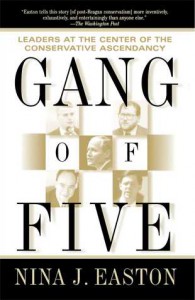Currently reading
Infinite Jest
The American Experiment: The Vineyard of Liberty, The Workshop of Democracy, and The Crosswinds of Freedom
Mindset: The New Psychology of Success
 I thought I was getting a book on cognitive psychology for a general audience and wound up with self-help dreck. The title was repellant but glowing references from other books and positive reviews from seemingly smart.. oops... seemingly hard working people induced me to bite. Dweck's theory seems plausible but this book does a lousy job presenting and defending her big idea. If after seven experiments involving hundreds of children you have the clearest findings you've ever seen there is likely a problem with your methodology. Have the findings been replicated? By someone not wedded to the theory? I started this book with an unusually high degree of credulity but Dweck managed to sap it with anecdotes and oversimplification. In trying to maximize its potential audience the book comes across like a dare to be great course on buying property with no money down. People I respect take this book and author seriously but there was so little substance that I leave to go troll Google Scholar guarded and angry at Dweck for not earning $8.99. (I ultimately signed my daughter up at brainology.us which attempts to help children internalize Dweck's growth-centered strategies. So far, she thinks the course is interesting but puerile. Hmmmm.)
I thought I was getting a book on cognitive psychology for a general audience and wound up with self-help dreck. The title was repellant but glowing references from other books and positive reviews from seemingly smart.. oops... seemingly hard working people induced me to bite. Dweck's theory seems plausible but this book does a lousy job presenting and defending her big idea. If after seven experiments involving hundreds of children you have the clearest findings you've ever seen there is likely a problem with your methodology. Have the findings been replicated? By someone not wedded to the theory? I started this book with an unusually high degree of credulity but Dweck managed to sap it with anecdotes and oversimplification. In trying to maximize its potential audience the book comes across like a dare to be great course on buying property with no money down. People I respect take this book and author seriously but there was so little substance that I leave to go troll Google Scholar guarded and angry at Dweck for not earning $8.99. (I ultimately signed my daughter up at brainology.us which attempts to help children internalize Dweck's growth-centered strategies. So far, she thinks the course is interesting but puerile. Hmmmm.)
girls: A Paean
 Kelman has a talent for aphorisms. The excerpts from Homer would have been more effective at conveying the timelessness of the theme if they had been culled to a few choice examples. Kelman's concept is that successful men have opportunistic sex with girls as a kind of restorative sacrament which temporarily salves the wound that inspired the mens' will to power. The drive at issue isn’t that complicated, narrowly focused, or interesting. I think David Milch did a better job of getting to the heart of the matter in Deadwood when Al Swearengen remarked: “But something ya gotta know about specialists – they pay a premium, and they never cause fuckin’ trouble. Sometimes I imagine in my declining years runnin’ a small joint in Manchester, England, catering to specialists exclusive. And to let ‘em know they’re amongst their own, maybe I’ll operate from the corner, hanging upside down like a fuckin’ bat.”
Kelman has a talent for aphorisms. The excerpts from Homer would have been more effective at conveying the timelessness of the theme if they had been culled to a few choice examples. Kelman's concept is that successful men have opportunistic sex with girls as a kind of restorative sacrament which temporarily salves the wound that inspired the mens' will to power. The drive at issue isn’t that complicated, narrowly focused, or interesting. I think David Milch did a better job of getting to the heart of the matter in Deadwood when Al Swearengen remarked: “But something ya gotta know about specialists – they pay a premium, and they never cause fuckin’ trouble. Sometimes I imagine in my declining years runnin’ a small joint in Manchester, England, catering to specialists exclusive. And to let ‘em know they’re amongst their own, maybe I’ll operate from the corner, hanging upside down like a fuckin’ bat.”
Gang of Five: Leaders at the Center of the Conservative Ascendacy
 When Ralph Reed rolled the stone aside and staggered out of his crypt to launch a direct mail campaign in the 2012 presidential election I vaguely recalled some shenanigans he had been involved in while at UGA. I came across Gang of Five while trying to reconstruct foggy memories of Reed’s exploits with SGA, the Demosthenian's and Red & Black. I enjoyed learning more about Grover Norquist's history and our shared appreciation of Stalin's skills as a political organizer and have been a fan of Clint Bolick's work to shake-up dysfunctional bureaucracies since his successful campaign to break Leeburn’s blockade against direct-mail wine in Georgia. In Gang of Five, Easton mischaracterized the ‘Reagan Revolution’ as an organic event driven by skilled young lawyers and pols and missed the tectonic forces at work as New Deal/Great Society initiatives were subducted by the relentless financial interests for whom the books’ subjects are merely tools. I kept hoping Easton would lift the curtain and explore the role ‘great men’ played identifying, mentoring, promoting and financing Reed, Norquist, Bolick, McIntosh and Kristol. Easton accurately recognized that the conservative counterculture would face its greatest challenge tacking back to govern effectively once the fire brigands they had targeted, mobilized and amalgamated were loosed on the nation.
When Ralph Reed rolled the stone aside and staggered out of his crypt to launch a direct mail campaign in the 2012 presidential election I vaguely recalled some shenanigans he had been involved in while at UGA. I came across Gang of Five while trying to reconstruct foggy memories of Reed’s exploits with SGA, the Demosthenian's and Red & Black. I enjoyed learning more about Grover Norquist's history and our shared appreciation of Stalin's skills as a political organizer and have been a fan of Clint Bolick's work to shake-up dysfunctional bureaucracies since his successful campaign to break Leeburn’s blockade against direct-mail wine in Georgia. In Gang of Five, Easton mischaracterized the ‘Reagan Revolution’ as an organic event driven by skilled young lawyers and pols and missed the tectonic forces at work as New Deal/Great Society initiatives were subducted by the relentless financial interests for whom the books’ subjects are merely tools. I kept hoping Easton would lift the curtain and explore the role ‘great men’ played identifying, mentoring, promoting and financing Reed, Norquist, Bolick, McIntosh and Kristol. Easton accurately recognized that the conservative counterculture would face its greatest challenge tacking back to govern effectively once the fire brigands they had targeted, mobilized and amalgamated were loosed on the nation.
Restless Giant: The United States from Watergate to Bush vs. Gore
 The narrative was often incomplete and misleading. Cultural and political biases abound. Compared to most other books in the Oxford History of the U.S. the craft was weak. It continued Patterson's practice from Great Expectations 1945-1973 of inelegantly presenting a jumble of cultural, political, demographical, legal and economic data. Some of my problems with the book likely stem from it relating recent and as yet unsettled history.
The narrative was often incomplete and misleading. Cultural and political biases abound. Compared to most other books in the Oxford History of the U.S. the craft was weak. It continued Patterson's practice from Great Expectations 1945-1973 of inelegantly presenting a jumble of cultural, political, demographical, legal and economic data. Some of my problems with the book likely stem from it relating recent and as yet unsettled history.





